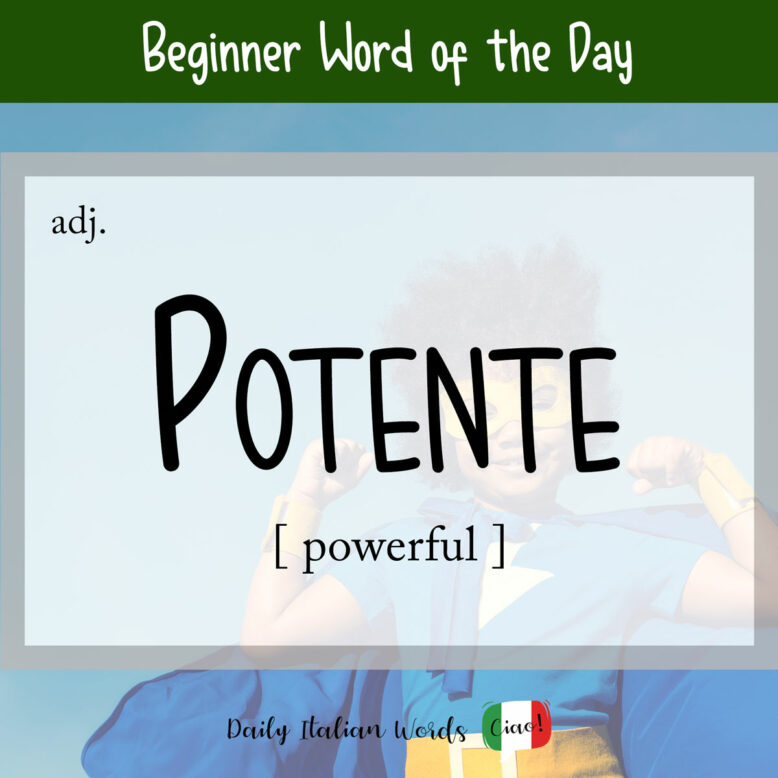The word for powerful in Italian is potente. If you have trouble remembering this word, I find it helps to create a mental link with the English term potent.

The singular potente modifies both masculine and feminine singular subjects. In its plural form, it becomes potenti.
As in English, potente can be interpreted in the following ways:
- someone or something with physical strength (e.g. muscoli potenti = powerful muscles)
- someone with a lot of influence or resources (e.g. un politico potente = a powerful politician)
- a collective with a lot of resources and power (e.g. una nazione potente = a powerful nation)
- something that is intense, overwhelming, evocative or concentrated (e.g. un odore potente = a powerful smell)
- art or writing that is rich, inspiring and evocative (e.g. un discorso potente = a powerful speech)
- an action carried out in a forceful manner (e.g. un colpo potente = a powerful blow)
Un potente terremoto ha scosso la città.
A powerful earthquake shook the city.

Below are a few useful terms that are etymologically related to potente:
- potere = power
- potenza = power
- potenziare = to strengthen, reinforce
- potenziamento = strengthening
- potentemente = powerfully
In the colloquial language of pre-teens, teenagers, students and young adults, potente is often used as an exclamation of admiration, similar to the colloquialism cool in English.
Che potente quel film!
What a cool film!
In rare cases, it may be followed by the preposition a + infinitive verb to mean capable, suitable or valid. (e.g. È potente a fare qualcosa. = He is capable of doing something.)
In addition to being an adjective, potente may also function as a noun to describe a powerful person or nation.
Bisogna aiutare i poveri e lottare contro i potenti.
We must help the poor and fight against the powerful.

Heather Broster is a graduate with honours in linguistics from the University of Western Ontario. She is an aspiring polyglot, proficient in English and Italian, as well as Japanese, Welsh, and French to varying degrees of fluency. Originally from Toronto, Heather has resided in various countries, notably Italy for a period of six years. Her primary focus lies in the fields of language acquisition, education, and bilingual instruction.


